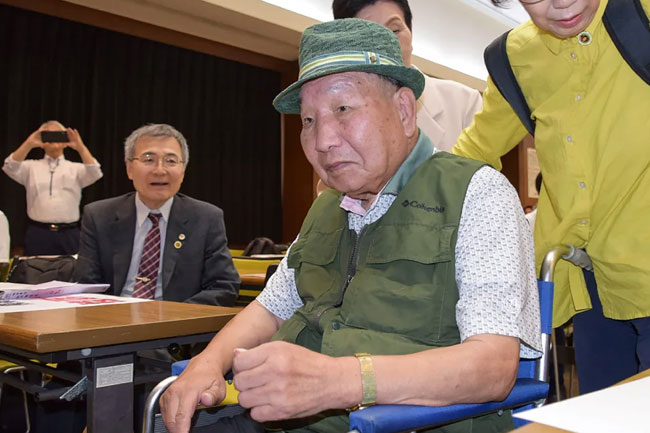A Japanese man who was on death row for more than 40 years until his release last year has been awarded $1.4 million in compensation – roughly $85 for each day he was wrongly convicted, a court said Tuesday.
Former professional boxer Iwao Hakamata, 89, was sentenced to death for the 1968 murders of four people despite repeated allegations by police that he fabricated evidence against him.
The world’s longest-serving death row inmate was exonerated after DNA tests showed that blood-stained clothing used to convict him was planted long after the murders, Japanese public broadcaster NHK reported.
The Shizuoka District Court confirmed to CNN that Hakamata had been awarded more than 217 million yen — about $85 a day since his conviction.
His lawyer, Hideo Ogawa, described the compensation as the “highest amount” ever awarded to a convict in Japan, but said it could never compensate for what Hakamata suffered.
“I think the state (government) has made an unforgivable mistake with 200 million yen,” the lawyer said.
“I think the state (government) has made an unforgivable mistake with 200 million yen,” the lawyer said, NHK reported.
Hakamata retired as a professional boxer in 1961 and took a job at a soybean processing plant in Shizuoka, central Japan.
Five years later, he was arrested by police after his boss, his boss’s wife, and their two children were found stabbed to death in their home.
Hakamata initially pleaded guilty to the charges against him, but later changed his plea, accusing the police of beating and threatening him to force him to confess.
In 1968, the judges sentenced him to death in a 2-1 decision.
One dissenting judge resigned from the bar after six months, disheartened by the failure to stop the sentence.
Hakamata, who has maintained his innocence since then, will spend more than half of his life awaiting execution.
He was released in 2014 pending a retrial, which he was acquitted of last year due to new evidence.
The case, which has a conviction rate of 99%, has drawn global scrutiny of Japan’s criminal justice system and prompted calls to abolish the death penalty in the country, according to the Justice Ministry website.
Hakamata’s sister Hideko, who has long campaigned for his release, told CNN last year that decades of imprisonment had irreparably damaged her brother’s mental health.
Hakamata was “living in his own world,” she said.
“Sometimes he smiles happily, but that’s when he’s in a delusion… We haven’t even discussed the trial with Iwao because of his inability to recognize reality.”



